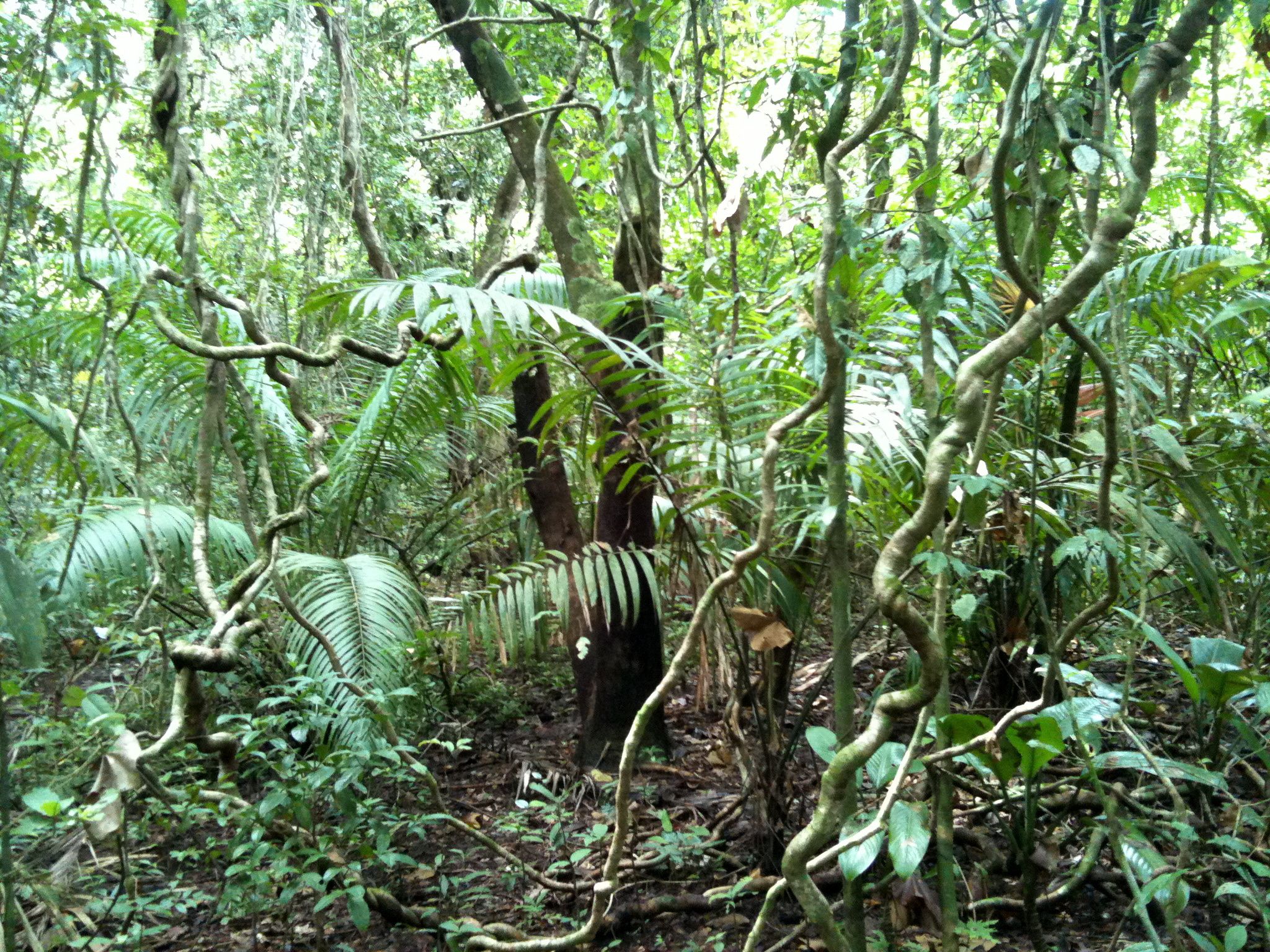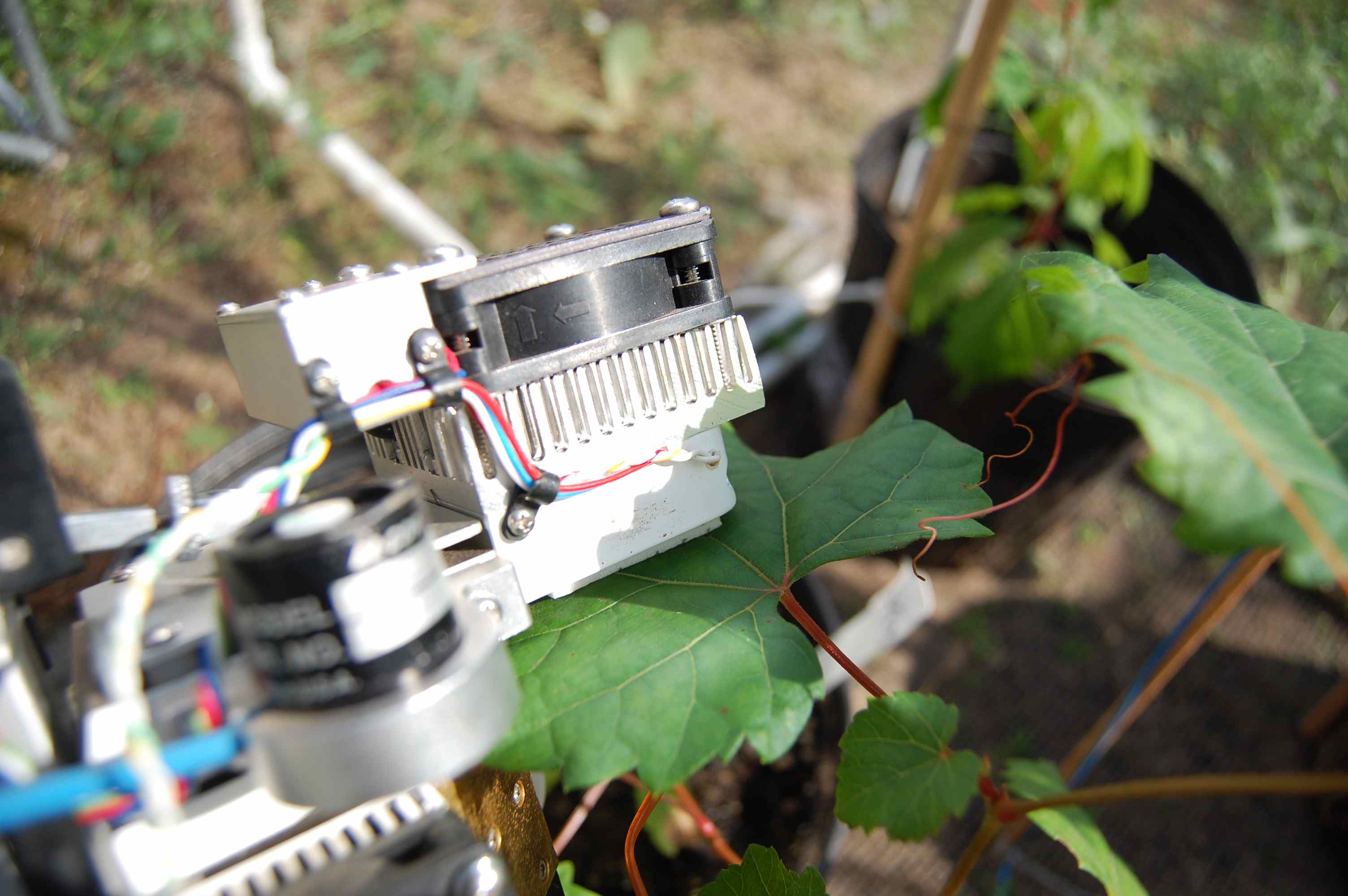



*Are you a masters student or undergraduate interesting in elevated CO2 experimentation and/or forest carbon dynamics? Possible collaborative work exists within my research projects. Contact me for more details.*
1. Field Research Internship in Panama (starting July 2013)
Project Description:
Neotropical forests are changing in biomass, productivity, and community composition, in part due to human disturbance. The changes are of global consequence, as neotropical forests account for the largest terrestrial share of carbon uptake from the atmosphere. Lianas (woody vines) influence tropical forest dynamics by reducing tree growth and reproduction, and increasing tree mortality. Recently, tropical liana abundance and biomass has increased in tropical forest surveys, while trees have increased relatively less or declined. This research project aims to develop a method to detect liana canopy cover at the landscape scale, quantify its extent, and verify whether it has increased over recent decades. The project utilizes a combination of satellite- and aircraft-based remote sensing imagery linked to a ground-based forest census to quantify liana abundance in a young tropical forest in Panama.
Position Description:
Research assistant will have the opportunity to work closely with a PhD student to carry out a major research project. The work will involve setting up a network of small forest census plots using a stratified random sampling design. The research assistant will learn to survey and mark forest plot boundaries, identify lianas, measure liana and tree size, estimate liana canopy cover, and other data collection. The research assistant will also learn to use survey-grade GPS instrumentation. The study is being conducted in forests in central Panama managed by the Smithsonian Tropical Research Institute (STRI). You will get a chance to interact/network with graduate students, postdoctoral researchers, and staff scientists from STRI on a weekly basis. You will also have the opportunity to attend weekly research seminars at STRI. Apply to be a part of the world’s leading tropical research community today!
Qualifications:

